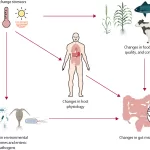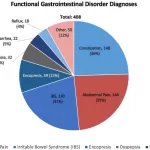December 27, 2024 — A recent study published in the Journal of Clinical Gastroenterology sheds light on promising treatments for small bowel injuries caused by nonsteroidal anti-inflammatory drugs (NSAIDs) and aspirin. The study found that neuroprotectants, including misoprostol, can significantly reduce mucosal injuries in the small bowel, offering protection against damage caused by these common medications.
The research, a meta-analysis of 18 randomized controlled trials, investigated the effects of various treatments on small bowel injuries. Six of the studies focused on the therapeutic efficacy of rebamipide, misoprostol, probiotics, and polaprezinc, while twelve others examined the prophylactic benefits of several mucoprotectants, such as misoprostol, rebamipide, and ecabet.
Key findings revealed that misoprostol was highly effective in treating small bowel injuries caused by NSAIDs or aspirin. The drug demonstrated a significant reduction in mucosal injuries, with a mean difference of -9.88 (P < .001). In contrast, rebamipide, while offering modest protection, showed the only significant prophylactic effect against these injuries (mean difference: -1.85; P < .001).
Mucoprotectants in general, including those evaluated in the study, were shown to reduce the extent of small bowel injuries (mean difference: -4.74; P = .02). These findings suggest that medications that protect the mucosal lining of the small bowel can play a critical role in mitigating the harmful effects of NSAIDs and aspirin, which are known to cause gastrointestinal issues in some patients.
The authors of the study emphasized the importance of considering small bowel injuries when prescribing NSAIDs or aspirin, especially for individuals at higher risk of gastrointestinal complications. They recommended incorporating mucoprotectants into treatment regimens to either prevent or manage these injuries effectively.
Given the widespread use of NSAIDs and aspirin for pain relief and inflammation, this study provides crucial insights into improving patient care by reducing the gastrointestinal side effects associated with these medications.











